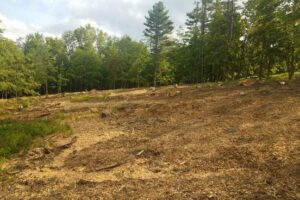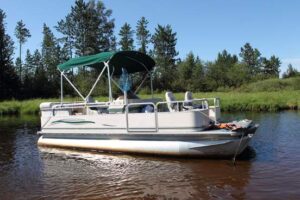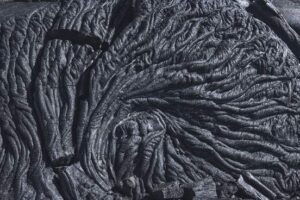Definition:
an outer garment worn to conceal untidy clothes
Note:
Who among us has not, in haste or horror, thrown a sweater over a rumpled t-shirt before heading out into public, or kept a coat on at a party after noticing a mustard stain on our blouse? This is a rhetorical question, of course, because we’ve all been grateful for coversluts at one time or another. That being said, you’d likely have a lot of explaining to do if you referred to your coverslut in polite company; although the slut in coverslut carries the oldest recorded (and still derogatory!) sense of that word—a woman who is careless, lazy, or untidy in her appearance or the cleanliness of her house—that is, er, not how most people use it today.
Definition:
a bass fiddle consisting of a string stretched on a pole and over a bladder and bowed with a notched stick
Note:
If someone brings their bumbass to a party, you know it’s going to be a good time. Wait—perhaps we should rephrase that. If someone brings their musical bumbass (also known as a bladder-and-string, among other names) to a party, you know it’s going to be a good time. If they bring the other kind of bumbass, “a pilotless airplane remote-controlled by radio signals,” you run the risk of having to help out when their drone inevitably gets stuck in a tree. The instrument sense of bumbass, for what it’s worth, is thought to be a combination of bum, a chiefly Scottish word for a constant humming noise, and bass.
Definition:
the clearing of wooded land for cultivation, or a parcel of cleared land
Note:
Assart is not what you might think at first. It’s not even what you might think at second—say, for instance, John Constable’s 1816 oil painting entitled “Two Donkeys.” It is, rather, a third thing, an old English legal term referring to the act of uprooting trees and brushy vegetation for agricultural purposes. Assart, while mostly obscure and historical now, can also be used as a verb. Truly, the history of the world since the dawn of agriculture is full of people running around assarting all over the place, for better and for worse.
Definition:
a flat-bottomed boat (such as a lighter); especially : a flat-bottomed boat or portable float used in building a floating temporary bridge
Note:
Pontoon may not sound prurient or scatological but the combination of its sounds—the plosive and the long double-o, make it reminiscent of a host of put-downs, including the common buffoon and especially the rarer poltroon, the latter referring to an utter coward. Calling someone a pontoon on the other hand, would be fairly meaningless, if still kinda funny.
Definition:
a logger who rolls logs down slopes too steep for teams
Note:
Ballhooters (or “ball-hooters”—see our helpful primer on hyphenating compound words) had a risky business, going where angels fear to tread—and oxen teams could not—to roll logs downhill for later sawing, milling, the whole lumbering shebang. According to our unabridged dictionary, ballhooter is a synonym of brutter which, while less likely to turn heads, probably made a sentence like “My brutter reckons he’ll be a ballhooter one day” awfully confusing.
Definition:
a semisweet cake usually of yeast-leavened dough containing raisins, citron, and nuts and baked in a fluted tube pan
Note:
Given the prevalence in English of pastry-related terms of endearment like honeybun, cupcake, and the like, the German borrowing gugelhupf could be a fine thing to call someone—that is, if you’re already on such terms. But to our ears it also sounds like gentle digs such as goof and noodlehead, if you’re up for some good-natured ribbing.
Definition:
basaltic lava having a smooth, often billowy, shiny surface
Note:
The key to not getting smacked in the kisser when saying pahoehoe (a borrowing of the Hawaiian pāhoehoe) is to pronounce it correctly (see quote above and listen to the pronunciation at our entry page), though you probably want to avoid calling someone “basaltic lava” in any event. A’a (or aa) is another borrowing from Hawaiian, this time from ‘a’ā, and refers to basaltic lava with a broken, rough surface; a’a can result from the same eruption of lava as pahoehoe depending on a variety of factors.











